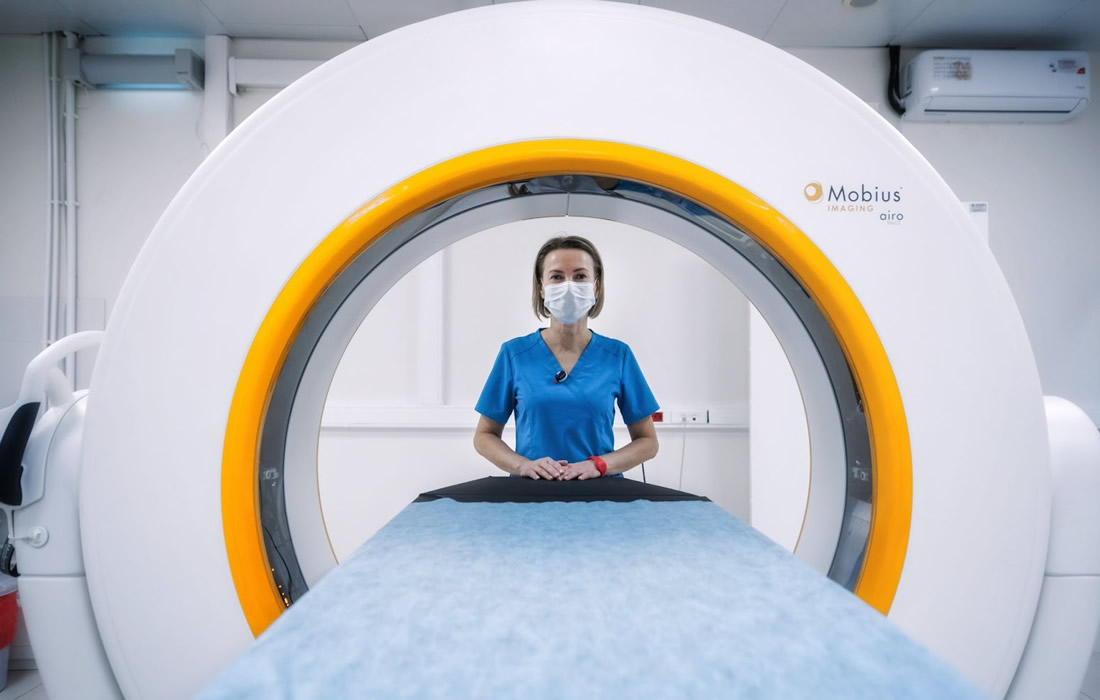COVID-19
Advanced MRI Technology Detects Changes in the Brain After COVID-19
Several previous studies of persisting problems after COVID have involved MRI brain scanning.
Although researchers have found differences compared with healthy brains, these differences are not specific to COVID-19.
“It can be frustrating for me as a doctor when I understand that the patients have problems, but I can’t find an explanation because there’s nothing in the MRI scan to explain it. To me, this underlines the importance of trying other examination technologies to understand what’s happening in the brain in patients with persisting symptoms after COVID-19,” says Ida Blystad, neuroradiologist.
In their current study, the researchers have therefore added a new type of MR imaging called advanced diffusion MRI.
“Diffusion MRI is a very sensitive technology that allows changes in how the nerve axons are organized to be detected. This is one of the reasons why we wanted to use diffusion MRI to study the effects of COVID-19 on the brain that other imaging technologies might not pick up,” says Deneb Boito, doctoral student.
This technology builds on the fact that there is water everywhere in the brain moving in the tissue according to the law of least resistance.
Water molecules move more easily along the neural pathways. By measuring the movement of water molecules through the neural pathways, researchers can indirectly infer the structure of neural pathways, just as we can indirectly understand that there is a motorway where there are many cars driving.
Healthcare usages of diffusion MRI include diagnosing stroke and planning brain surgery.
In their current study, the researchers used a more advanced version of diffusion MRI.
They examined 16 men who had been hospitalized for severe COVID-19 and who were participating in the Linköping COVID-19 Study (LinCos) at the Department of Rehabilitation Medicine in Linköping.
They still had persisting symptoms after seven months. This group was compared with a group of healthy individuals without post-COVID symptoms who had not been hospitalized for COVID.
The participants’ brains were examined with both conventional MRI and diffusion MRI.
“The two groups differ when it comes to brain white matter structure. This can be one of the causes of the neurological problems experienced by the group that had suffered from severe COVID-19. It’s a result that’s in line with other studies that have shown changes to the brain’s white matter. However, having examined only a small group of patients, we are cautious about drawing any major conclusions. With this technology, we’re not measuring the function of the brain, but its microstructure. To me, these findings are a sign that we must investigate long-term effects of COVID-19 in the brain using more advanced MRI technology than conventional MRI,” says Ida Blystad.
As the participants were examined on one occasion only, it is not possible to know whether the differences between the two groups will disappear over time or whether they are permanent.
Sources:
Deneb Boito, Anders Eklund, Anders Tisell, Richard Levi, Evren Özarslan, Ida Blystad. MRI with generalized diffusion encoding reveals damaged white matter in patients previously hospitalized for COVID-19 and with persisting symptoms at follow-up. Brain Communications, 2023; 5 (6) DOI: 10.1093/braincomms/fcad284
Lovisa Hellgren, Ulrika Birberg Thornberg, Kersti Samuelsson, Richard Levi, Anestis Divanoglou, Ida Blystad. Brain MRI and neuropsychological findings at long-term follow-up after COVID-19 hospitalisation: an observational cohort study. BMJ Open, 2021; 11 (10): e055164 DOI: 10.1136/bmjopen-2021-055164
Linköping University. “Advanced MRI technology detects changes in the brain after COVID-19.” ScienceDaily. ScienceDaily, 11 December 2023. <www.sciencedaily.com/releases/2023/12/231211114616.htm>.
Materials provided by Linköping University. Original written by Karin Söderlund Leifler; translated by Anneli Mosell. Note: Content may be edited for style and length.
Images from:
Photo by Max Mishin
https://www.pexels.com/photo/magnetic-resonance-imaging-machine-and-nurse-11119416/

